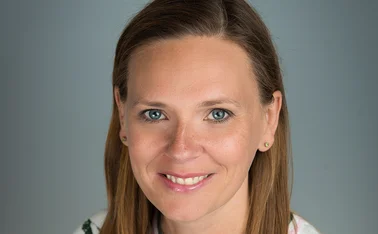
Analysis: Should the government revise the deadline for the whiplash portal?

The small claims portal is due to enter its testing phase in October, before officially launching in April 2020. However, many in the industry are concerned that the proposed deadline is not feasible, given the lack of clarity from the government
The small claims portal – built by the Motor Insurers’ Bureau on behalf of the Ministry of Justice – is intended to bring most minor personal injury claims online from April 2020. Ministers believe the system will lower costs and make it easier for people with minor injuries to make a claim without needing legal help.
The MIB said the portal is being developed using agile methodology, which allows for changes to be implemented when necessary. This involves a series of three-week sprints during which components are created and tested.
Sprint eight out of 11 has just been completed and once sprint nine is complete, the portal will be ready for public testing. Sprints 10 and 11 will cover the remaining build scope and will conclude in October.
The MIB has yet to finalise the branding of the portal, as well as the language and the wording. So far building the portal has cost the industry approximately £15m.
While the industry recognises the progress the MIB has done on the portal so far, the concern lies with the lack of clarity coming from the government over the whiplash rules.
Lack of clarity
James Dalton, director of general insurance policy at the Association of British Insurers, said that while the MIB is hard at work preparing for the new system, there remain many missing pieces which are still required for the system to work as intended.
Dalton added that “action needs to be taken swiftly” to give clear guidance on how to provide a proportionate valuation to minor injuries, otherwise the risk is that the new portal gets clogged up in dispute before it even begins.
Huw Evans, director general at the ABI, agreed that it is important that the insurers get clarification, adding that the overall reforms cannot work without those rules in place.
He said: “One of the things that will happen if we don’t get that clarification is it will give the claims management companies more scope to exploit the situation. That is what we are keen to avoid.”
Matthew Maxwell Scott, executive director of the Association of Consumer Support Organisations, said: “The ministers haven’t made any decisions beyond the original ones, so I’d hope the new ministerial team and the MoJ might take the opportunity of being newly in command to question whether it is sensible to rush through a new and very complicated system in time for a politically set arbitrary deadline or wait to make sure that all the necessary customer safeguards are in place.”
Meanwhile, Jonathan White, legal director of Nahl Group, said that the industry needs to prepare for the portal’s implementation, but added “at this late stage we know very little about the finer details of the government’s plans”.
He said: “In particular, we have no line of sight over how liability denied cases will be dealt with or how medical reports will be funded.
“It is vital that the industry is ready for the portal’s introduction in order for the reforms to be implemented successfully and for there to be no impact on access to justice for consumers.
“The government is working to create the new portal to a launch deadline of April, and our concern is that this timeline doesn’t seem sufficient to ensure that a robust system is in place.”
Medco
The industry is also concerned over how Medco will be implemented into the portal as the government is yet to publish its response to the four-week consultation on how Medco will be used by litigants in person, which concluded in May.
While Medco has supported the MoJ’s plans to extend the coverage of Medco’s services to all road traffic accident-related PI claims under £5000 and extending the existing fixed cost medical report regime, it has warned that expanding the types of medical experts available could offer too much choice to claimants, potentially creating confusion.
It said that “simplifying the process for them [claimants] is crucial and too many choices would defeat this aim”.
Consultation
Martin Heskins, executive chair of the Medco board, said: “Medco has participated in the consultation from the point of view of ensuring the new system provides a simple and efficient service for unrepresented claimants. We believe that expanding the service to cover all road traffic accident-related personal injury claims up to £5000 is a step in the right direction towards securing this positive outcome.
“Our response also states our opinion that GP experts have sufficient expertise to cover most injuries up to £5000. In addition, we have stated the need for revised qualifying criteria in order to further enhance a high quality independent medical journey for the claimant.”
David Johnson, partner at DAC Beachcroft, said: “At the current time we don’t have a clear picture of what part Medco will play in the new online portal. Logically with a wider class of claims coming within the small claims track limit and the portal being set up to deal with those claims you would expect Medco to have a wider remit and wider class of expert witness to come within the Medco regime, however, we are not going to know whether that will be the case until we see the MoJ’s response to the recent consultation.”
However, speaking at the recent MIB whiplash seminar, David Parkin, deputy director for civil justice and law at MoJ, said that the consultation findings were due soon on how to process medical reports for unrepresented claimants.
He added that MoJ has “absolute confidence Medco will be able to make changes in time and is continuing to liaise with Medco on this”.
In addition, he said that the mechanisms for how the service and Medco will integrate is not dependent on the consultation outcome and the work has already started on how the service engages with Medco.
In numbers
1500
The number of whiplash claims made in the UK every day
£2bn
Cost to the insurance industry a year
£90
Increase to the average insurance premium
Source: The Association of British Insurers
Alternative dispute resolution
Alternative dispute resolution, and its unavailability to represented claimants, is another problematic area according to Maxwell Scott.
He said: “The problems are pretty obvious of what that might lead to, in terms of far greater impact on a small claims court if a represented claimant has liability disputed, and then after that counter disputed.
He added: “They can’t access alternative dispute resolution like unrepresented claimants so they have to go to court – so that seems like an oversight on their part.”
When asked at the MIB whiplash seminar, whether professional users will be excluded from the ADR service, the MIB said that this decision has yet to be confirmed and the MoJ is continuing to look at the scope of, and eligibility for, ADR.
It added that the original intention has been to offer ADR only to unrepresented claimants adding that there are issues with extending this to include professional users, particularly the capacity to support this.
It is still unknown who will provide the ADR service as the MIB is in the process of going to the market for this and looking at what capacity and capabilities are available.
While the seminar audience questioned what is an insurer’s incentive to follow this and not just deny the liability, the MIB said the portal will monitor the risk of these behaviours and highlight any issues in this area.
According to Maxwell Scott, the short period of time that the MIB is planning to test the portal on “some dummy cases” before the full launch and an annual caseload of more than half a million of RTA accidents “seems unnecessary brave”.
He said: “There’s no reason to rush this, it’s much better to create a system that works, do it once do it right and learn from mistakes of rushing things in the past like Medco itself.
“If the pressure is put on insurers from the government, the insurers should recognise that it is not in their interest, and we hear from a lot of insurers that they are just as concerned as the claimant sector is about what it will mean, because consumers will be disadvantaged.”
He added that claimants will blame the insurers for the problems with the portal.
He continued: “The mistake they made is setting an arbitrary deadline, rather than saying this is what we want to achieve and work backwards from that because, and I don’t mean this unfairly, but they make it up as they go along. Therefore, it seems to me that all of those involved with building the system get it right before they launch it on the unsuspecting public.”
Agile process
Maxwell Scott explained that the agile process adopted by the MIB does not work under the timetable proposed and the new portal must be fully fit-for-purpose and properly tested ahead of launch.
Motor Accident Solicitors Society chair Paul Nicholls agreed that the portal might not be ready in time, he said: “We cannot see that this will be possible with so many important decisions still to be made and development work still to be undertaken.
“A ‘minimum viable product’ that does not safeguard accident victims, fully support litigants in person, discriminates against legally represented claimants and provides unfair advantages for CMCs should not be acceptable.”
While the industry is hesitant on whether the portal will be ready in time, Dominic Clayden MIB CEO, said it is on track to be ready.
He said: “The issues that are outstanding are actually broadly outside our control. We are still waiting for the response to the consultation on how medical reporting is going to work. When we get that we will make that assessment. We also have court rules to be drafted and, assuming that the civil procedure committee is there, then those will be on track and then the final aspect we want to make sure is in place. We know that is important to the insurance industry in terms of how civil minor injuries are treated. That is an issue that is particularly stressing insurers.
“I won’t deliver something that doesn’t work properly. I won’t be driven by politicians in that space because ultimately, we are the people who have to deliver the service day in and day out. Our job is to give people a reasonable process to get their compensation. If we don’t have clear court rules and if we don’t understand how getting a medical report from the consultation is going to work then we can’t make that work for somebody.”
He added: “It is important that the service can handle the widest variety of claims, particularly if they’re submitted by an unrepresented claimant, whether this is via the online service or contact centre which will provide support for a range of needs, including those who are digitally disadvantaged. As part of ensuring the portal works for as many people as possible, we are undertaking testing before the service goes live.”
Talking at the whiplash seminar, Parkin explained that neither Brexit uncertainties nor the arrival of Robert Buckland as the new Lord Chancellor would affect the continuity of policy.
He added that the MoJ is currently working with the Judicial College on guidelines for valuing injuries with a mixture of whiplash and non-whiplash.
Only users who have a paid subscription or are part of a corporate subscription are able to print or copy content.
To access these options, along with all other subscription benefits, please contact info@postonline.co.uk or view our subscription options here: https://subscriptions.postonline.co.uk/subscribe
You are currently unable to print this content. Please contact info@postonline.co.uk to find out more.
You are currently unable to copy this content. Please contact info@postonline.co.uk to find out more.
Copyright Infopro Digital Limited. All rights reserved.
As outlined in our terms and conditions, https://www.infopro-digital.com/terms-and-conditions/subscriptions/ (point 2.4), printing is limited to a single copy.
If you would like to purchase additional rights please email info@postonline.co.uk
Copyright Infopro Digital Limited. All rights reserved.
You may share this content using our article tools. As outlined in our terms and conditions, https://www.infopro-digital.com/terms-and-conditions/subscriptions/ (clause 2.4), an Authorised User may only make one copy of the materials for their own personal use. You must also comply with the restrictions in clause 2.5.
If you would like to purchase additional rights please email info@postonline.co.uk







